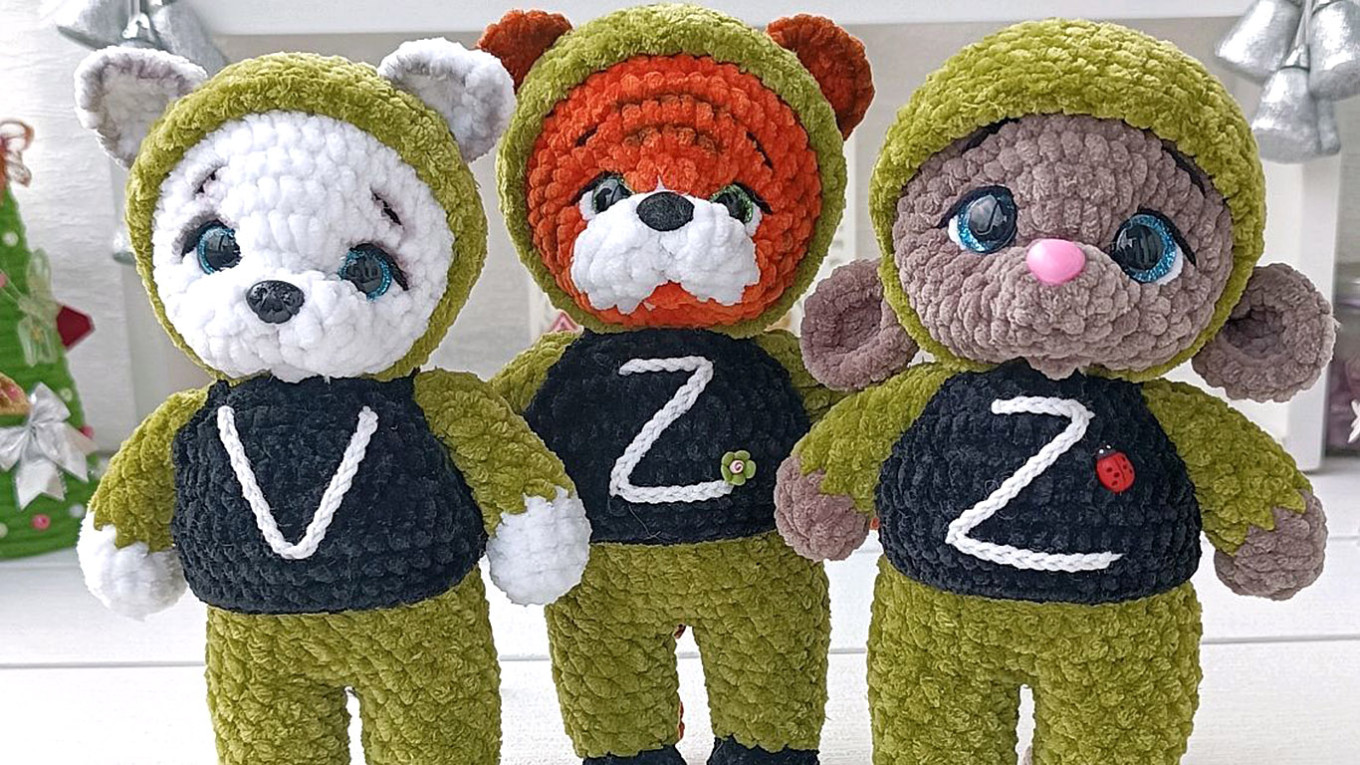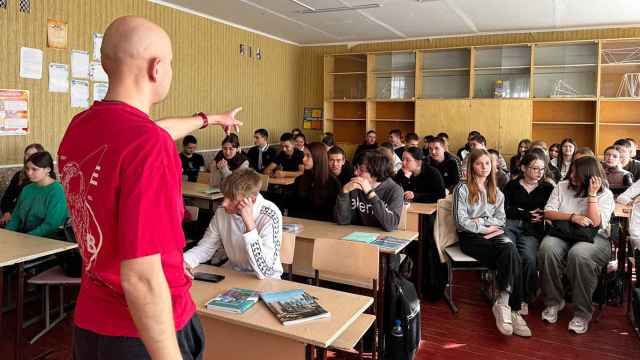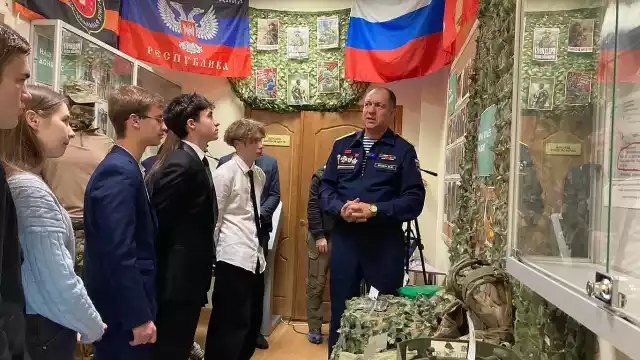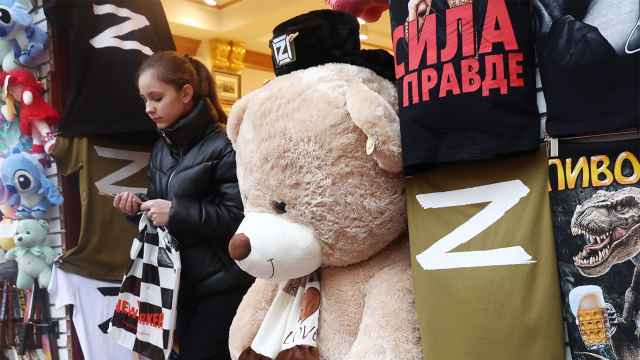“In this strategy game, you lead a battalion aiming to liberate Ukraine from Nazi rule,” reads the description of Russia’s first board game about the war in Ukraine.
The game, called “Special Operation on the Outskirts,” sells for about 1,600 rubles ($20) on Russian online marketplaces.
Inspired by Monopoly and designed for two to six players, the game challenges participants to occupy as many Ukrainian cities as possible. Instead of Monopoly money, players use a fictional currency featuring the faces of President Vladimir Putin, Foreign Minister Sergei Lavrov and former General Sergei Surovikin.
In the fourth year of the full-scale invasion, toys and merchandise featuring the pro-war Z symbol have become increasingly common on Russian marketplaces and social media.
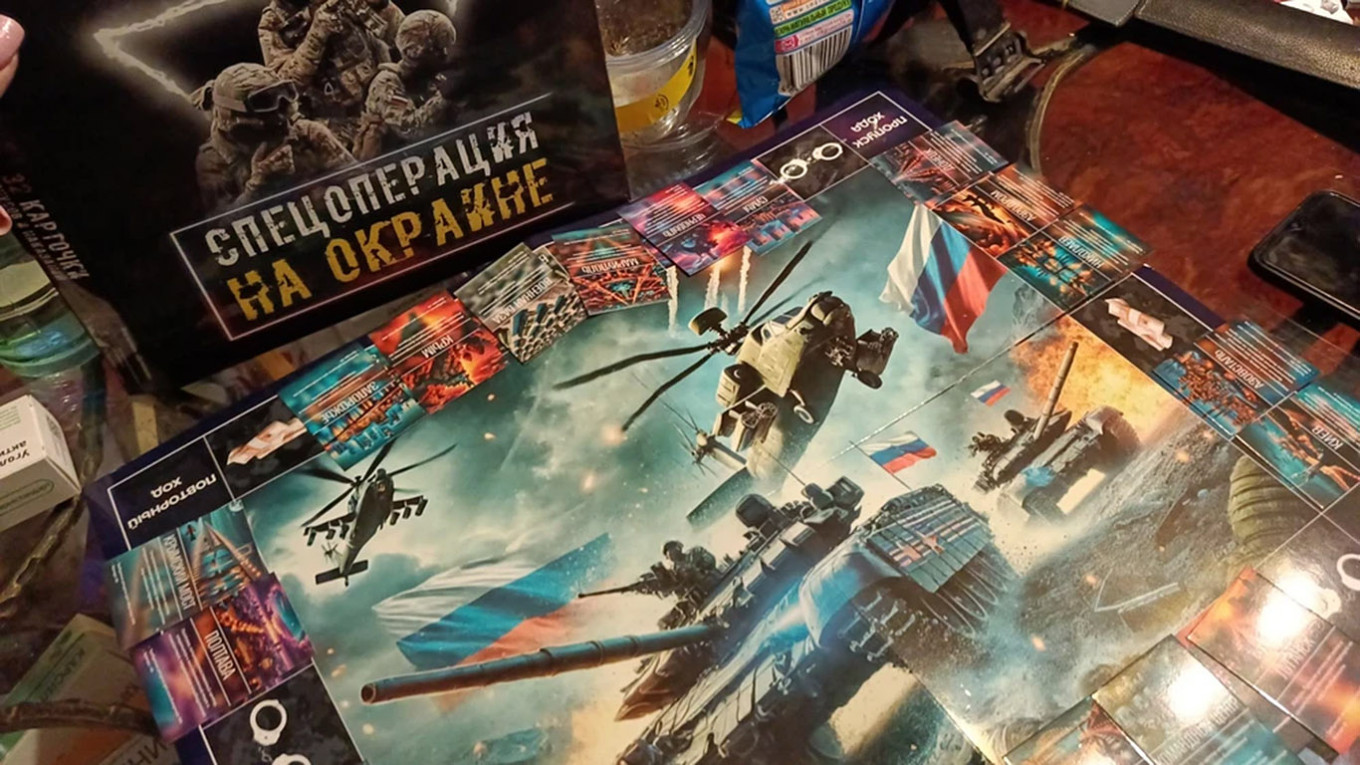
Listings include everything from car dashboard decorations to toy soldiers for children.
“The plot grabs you from the first minutes. It’s great that part of the proceeds go to support participants of the special military operation. The perfect gift for patriots!” writes Yekaterina, a recent buyer. Other reviewers share that they gave the game to their sons on Defenders of the Fatherland Day.
Another board game, “Couch Expert,” promises to educate players about the invasion.
Players have 30 seconds to answer questions about the progress of the “special operation.” Questions range from the late ultranationalist politician Vladimir Zhirinovsky’s position on the war to the roles of figures like Elon Musk and propagandist Olga Skabeyeva in shaping сoverage of the invasion.
“I ordered 11 of them for school as gifts for the boys. But I got lucky — the boxes came wrapped in film, so it’s not embarrassing to give them. Thanks,” writes a woman named Natalia in a review.
These toys span all price ranges, from an acrylic Z-minion to a roly-poly toy bearing the pro-war slogan “You can’t knock us down.” The latter sells for about 500 rubles ($6).
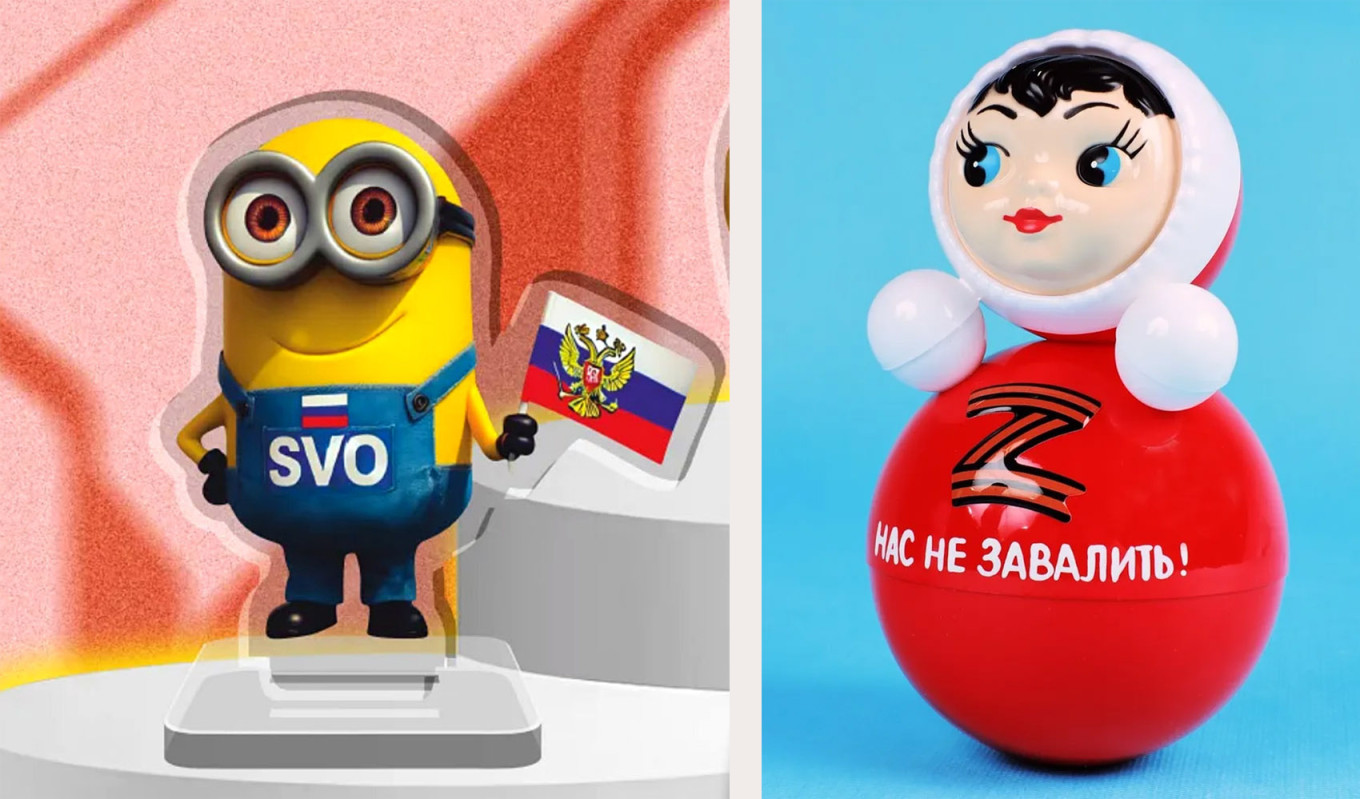
“The idea to create a patriotic roly-poly toy came five years ago, when the Russian team was banned from competing under the national flag at the Olympics in Korea,” says Dmitry Zavidov, director of the Kotovsky Roly-Polies company.
On VKontakte, Yulia from Moscow sells “knitted fighters” shaped like a tiger, mouse or dog. Each animal, stitched with a Z or V, costs 1,500 rubles ($18). For an extra 250 rubles, Yulia offers to embroider a soldier’s callsign on the toy’s flak vest.
“Any other inscription of your choice is also possible (price depends on the size),” reads the product description. On some marketplaces, similar toys are priced at around 1,100 rubles ($14).
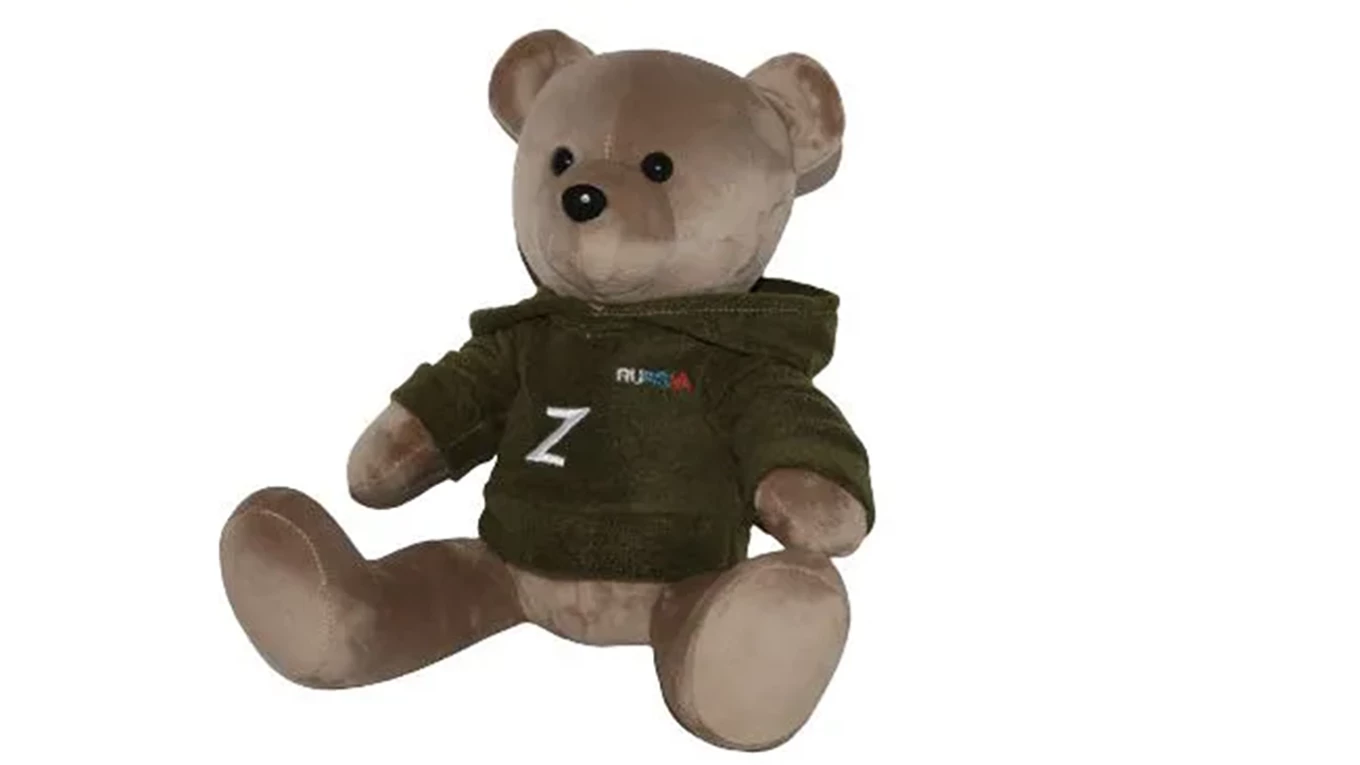
Another item on the market is a stuffed raccoon marked with the Z symbol, a reference to the raccoon that Russian troops infamously stole from a zoo during their retreat from the southern Ukrainian city of Kherson.
Sellers also offer stuffed bears in military uniforms with Z and V insignia. In some cases, the toys are handmade by widows of Russian soldiers.
For younger children, “patriotic” coloring books sell for about 300 rubles ($3.73).
“My child is four. He liked it,” says one mother in a review. Some parents post videos of their children coloring tanks and other Russian military equipment.
For about the same price, sellers also offer a set of toy soldiers called the “Special Operation Recon Soldiers Set.”
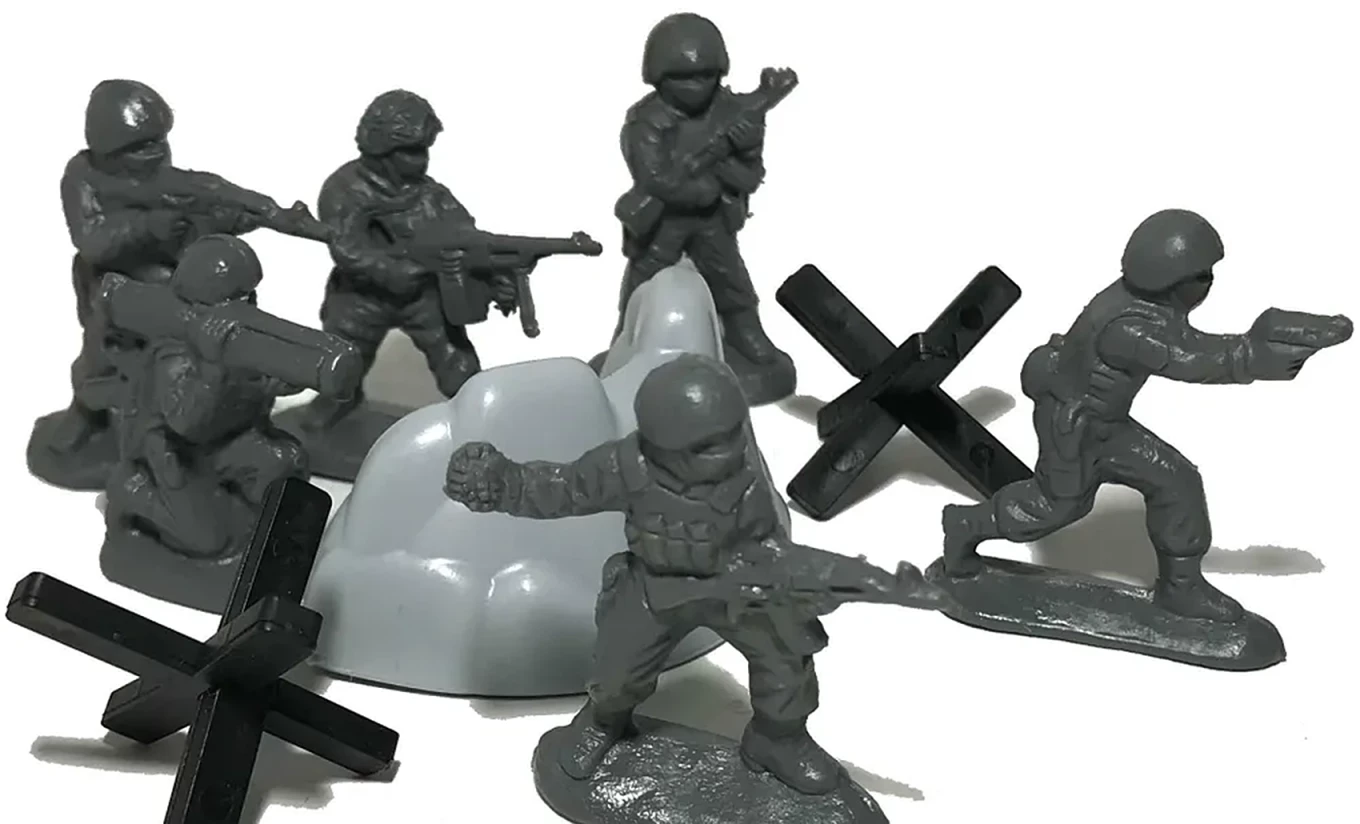
“Toy figures of the Russian Armed Forces will delight children with their quality and design. They’re perfect for role-playing games and help develop creativity and imagination,” the manufacturer claims.
War-related games and toys may hold particular appeal for children, explains psychologist Michael Brandl, a member of the German toy evaluation group Spiel Gut.
One reason for their appeal, he says, is that they offer positive reinforcement of the media and propaganda messaging that children encounter daily.
“From these sources, children form an image of a person they then try to imitate and act out in roleplay. Weapons and how to use them become part of the child’s perceived reality and a key attribute of the supposed image of the ‘ideal’ man,” Brandl wrote.
A child psychologist from Russia, whose name has been withheld for safety reasons, voiced a similar view.
“This is a protracted war, so the state and Vladimir Putin need boys, even from kindergarten, to already be preparing for the future battlefield,” the psychologist told The Moscow Times. “First, the state turns poor women into mothers who buy these toy soldiers. Then this Z-patriotism is nurtured with a mother’s milk. They’ll buy it without even noticing the Z, especially if it’s on sale.”
Marketplaces also offer stuffed cat car decorations in camouflage colors that cost about 500 rubles ($6.20). In addition to a toy with the Russian tricolor and the letter Z, the manufacturer also offers a version bearing the Wagner mercenary group’s skull emblem.
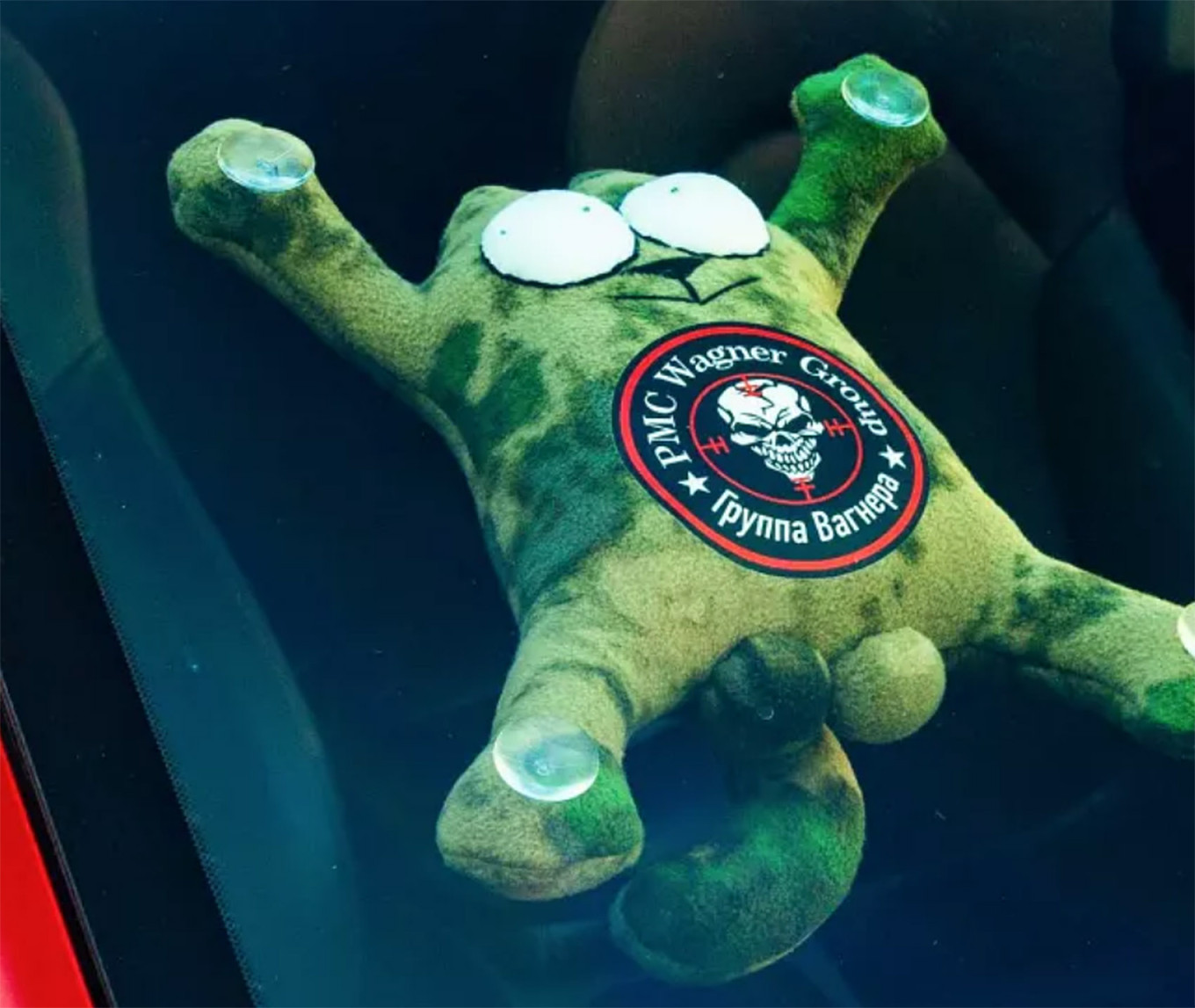
“You sent me a female cat, apparently — no male features and no Z. I specifically needed a male cat with a Z on it! I refused the order at pickup,” complains a buyer named Elena. Other buyers note that the toy’s tail fell off quickly.
Even toy robots are marked with the Z symbol. A set of these toys costing 784 rubles ($9.70) includes a robot with a Russian flag and weapons. For an extra 200 rubles, it comes with a glow-in-the-dark Z.
“Satisfied with the purchase. Russia will win! Russia always wins!” says Maria, who bought the Z-robot for her son, in her review.
A Message from The Moscow Times:
Dear readers,
We are facing unprecedented challenges. Russia's Prosecutor General's Office has designated The Moscow Times as an "undesirable" organization, criminalizing our work and putting our staff at risk of prosecution. This follows our earlier unjust labeling as a "foreign agent."
These actions are direct attempts to silence independent journalism in Russia. The authorities claim our work "discredits the decisions of the Russian leadership." We see things differently: we strive to provide accurate, unbiased reporting on Russia.
We, the journalists of The Moscow Times, refuse to be silenced. But to continue our work, we need your help.
Your support, no matter how small, makes a world of difference. If you can, please support us monthly starting from just $2. It's quick to set up, and every contribution makes a significant impact.
By supporting The Moscow Times, you're defending open, independent journalism in the face of repression. Thank you for standing with us.
Remind me later.


